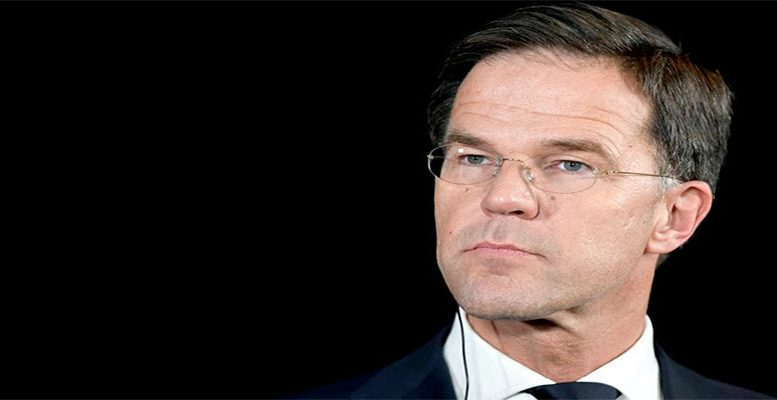TC | On February 20th the European Council discussed the framework for the EU’s budgets for the next six years (2021-2027). Once the European Commission’s proposal had been set aside, the proposal by the President of the Council, Charles Michel, was put on the table for discussion.
The Commission’s proposal, made by Jean-Claude Juncker in 2018, already represented a decrease in comparison with the current budgets (2014-2020), measured in terms of its weight with regard to the EU27’s Gross National Income (GNI). 1.135 trillion (1) in credit commitments in the Commission’s proposal is 1.11% of its GNI, compared to 1.16% in the current budgets. This difference means a decrease of more than 51 billion euros. Plus, in order to achieve increases in the priorities it set (R&D&I, environment and climate, Erasmus+, etc.) the commission is recommending cuts of 10% in the funds supporting cohesion policies and 15% in the CAP.
In response to this proposal, the European Parliament, the European Economic and Social Committee (EESC) and the Committee of the Regions have been advocating that, instead of decreasing, the next budgets of the EU27 should be increased to 1.3% of the GNI. This would amount to 1.329 trillion euros. To this end, new taxes are advocated in the form of a financial transaction tax, a digital tax and carbon tax. Further to this, it is also advocated to receive a share of corporate tax revenue following a reform establishing a common consolidated European corporate tax base.
In response to this proposal, a group of European governments, those of the so-called Hanseatic League (2) led by the Dutch government, have proposed more drastic cuts: setting the spending limit at 1.0% of the GNI, which would be approximately 1.022 trillion euros. This would be 164 billion euros less than the current budget.
Charles Michel gave the Council summit a proposal very similar to that made by the previous Finnish rotating presidency: that the expenditure ceiling for the multi annual financial framework 2021-2027 should be 1.074% of the GNI. This means a total of 1.098 billion euros and a cut, compared with the current budget, of around 88 billion euros. Compared to the Commission’s proposal, this deepens the cut in the cohesion funds (-12%) and slightly drops the CAP (-14%).
Contrary to the positions of the Hanseatic League, a group of countries that have been called “Friends of Cohesion” (3) – politically heterogeneous as indicated by the fact that they range from Spain and Portugal to Poland and Hungary, but united by the fact that they are recipients of funds and face cuts in agricultural and cohesion policies – have expressed their rejection of Michel’s proposal. The Council summit ended without agreement and the final attempt at an agreement will fall to Germany, whose government will hold the rotating EU presidency in the second half of the year.
The selfishness and lack of solidarity of many of the governments of the richest countries in the EU, which are net contributors to the EU budget, but which at the same time receive the greatest advantages in economic exchanges, both in terms of goods and capital, is unacceptable. The attitude of the Dutch government, headed by the conservative Mark Rutte, is paradigmatic in this respect. On the one hand, it is on the side of budget cuts, with the condescension of the German government. At the same time, it shows, like Germany, huge surpluses in its trade and current account balances, surpluses never corrected by the application of the “excessive surplus” mechanism. From 9.5% of GDP to 7.8% of GDP between 2015 and 2020 (EC forecast), as far as the balance of goods is concerned. Also, from 11.2%, 9.8%, 9.0% and 8.6% of GDP between 2018 and 2020, in the current accounting year.
On the other hand, it acts as a flourishing tax haven, sheltering the headquarters of tens of thousands of “ghost companies”, as the IMF calls companies with no economic activity, through which 3.5 trillion euros of false direct foreign investment pass (4). In order to strengthen the Dutch government’s decisive contribution to the EU’s internal fiscal dumping, which drains tens of billions of euros of public resources from the states that do not enforce this, the Rutte government is opposed to the adoption of directives that seek to limit unfair tax competition in company taxation and to which it proposes changing the procedure from unanimity to qualified majority voting on tax rules.
It seems clear that there is a need for greater public awareness of this issue in European countries, and for pressure to be put on governments to achieve stronger budgets, which will make it possible to strengthen the EU, to meet the challenges posed by fair green and digital transitions and the continuing trends of a slowdown in world economic activity, in an environment full of geostrategic risks.
1. All figures are expressed using the value of the euro in 2018 .
2. The Hanseatic League is made up of the governments of: The Netherlands, Sweden, Finland, Denmark, Estonia, Latvia, Lithuania, The Czech Republic and Ireland.
3. There are a total of 16 countries: Spain, Bulgaria, Cyprus, Croatia, Slovakia, Slovenia, Estonia, Greece, Hungary, Latvia, Lithuania, Malta, Poland, Portugal, The Czech Republic and Romania. It is worth noting the desertion, whether temporary or permanent, from the Hanseatic League of the Baltic countries.
4. According to IMF magazine called ” Finance Development”, in its June 2018 and September 2019 issues, 40% of the world’s FDI, some 15 billion euros, passes through “shell companies”. Eighty-five percent are based in 10 countries, three of which are EU member states: Luxembourg, 4 billion euros, the Netherlands, 3.5 billion and Ireland.





